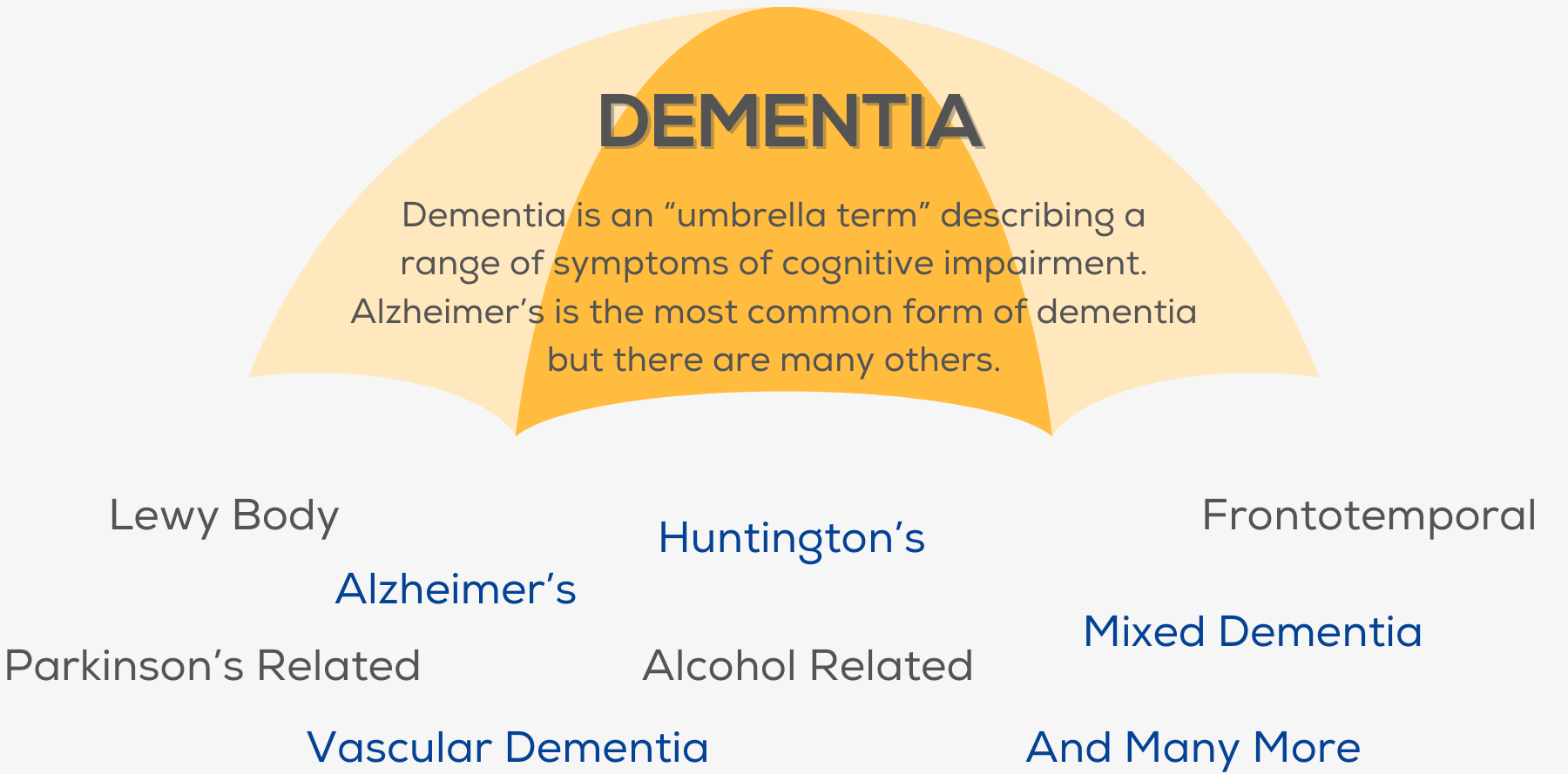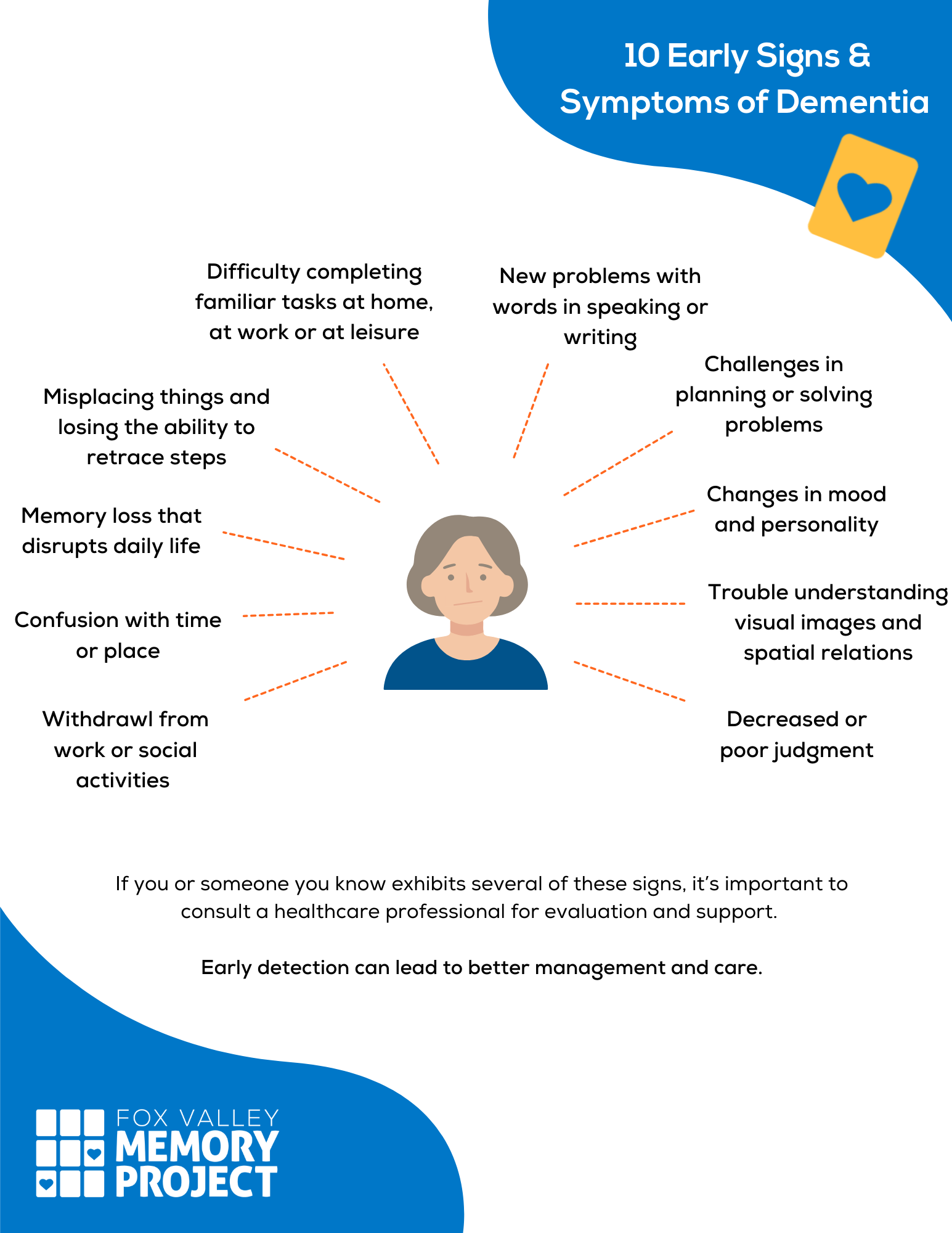
What Is Dementia?
Dementia is a general term used to describe a range of cognitive impairments that interfere with a person’s ability to think, remember, reason, and perform daily activities.
Dementia is not a single disease but rather a collection of symptoms that can be caused by various underlying conditions affecting the brain. People with dementia may experience memory loss, confusion, difficulty communicating, poor judgment, and changes in behavior.
Dementia is typically associated with aging, but it is not a normal part of aging. It can also be caused by conditions such as stroke, brain injury, or infections.
The symptoms, progression, and impact of dementia can vary widely between individuals, depending on factors like the type of dementia (e.g., Alzheimer's, vascular dementia), overall health, age, and personal circumstances.
Learn More from the National Institute on Aging (NIH)
Getting an early diagnosis of dementia has several benefits that can improve
quality of life, planning and care.
1. Memory changes that disrupt daily life
It's normal to occasionally forget an appointment, a co-worker's name, or struggle to recall a friend's phone number—only to remember it later. However, for someone living with dementia, memory loss occurs more often and may include difficulty recalling recently learned information or events.
2. Difficulty completing familiar tasks
It’s normal for busy individuals to occasionally forget a step, like serving part of a meal, and then remembering it later. However, a person living with dementia may find it difficult to finish tasks they’ve done their entire lives, such as cooking a meal or playing a favorite game.
3. New problems with words in speaking or writing
It’s common for anyone to occasionally struggle to find the right word in a conversation. However, a person living with dementia may forget familiar words or default to familiar words with increasing frequency. They may describe objects instead of naming then or even substitute words in ways that make their speech or writing difficult to understand.
4. Confusion with time or place
It’s normal to occasionally lose track of the day or momentarily forget why you entered a room. However, for someone living with dementia, confusion with time and place can be much more severe and persistent. A person with dementia might forget where they are or how they got there. This disorientation can happen even in places they’ve known for years, such as their own neighborhood or home.
5. Misplacing things
Anyone can temporarily misplace a wallet or keys. Occasional forgetfulness is normal, but if a person frequently loses items and can’t retrace their steps to find them, it might signal something more.
6. Withdawal from work or social activities
It’s natural to occasionally feel unmotivated about chores, work, or social events, but most people eventually regain their enthusiasm. In contrast, a person living with dementia may become increasingly passive and disengaged, often needing reminders or encouragement to participate in activities.
7. Challenges in planning or problem solving
Occasional mistakes, like mismanaging finances or forgetting a step in a recipe, are normal. However, individuals living with dementia may experience persistent difficulty with tasks that require organization or decision-making. This might include trouble following a familiar recipe, managing monthly bills, or concentrating on detailed tasks.
8. Decreased or poor judgement
Occasionally, people may make poor decisions, like delaying a doctor’s visit when feeling unwell. However, a person living with dementia may experience significant changes in judgment or decision-making, such as failing to recognize a serious medical issue, wearing inappropriate clothing, like heavy layers on a hot day, or forgetting to shower or brush their teeth or hair.
9. Changes in mood, personality and behavior
Sometimes people feel sad and moody, or experience changes in their behavior. But a person living with dementia may experience more severe changes. For example, they may quickly become tearful or upset for no obvious reason. They may be confused, fearful, suspicious and withdraw from others. They may act differently from what is normal for them.
10. Challenges understanding visual and spatial information
A person with dementia may have problems with vision, depth perception and movement. They may have challenges with finding their way around their environment or placing items on a table. They may trip on steps or may even feel dizzy with sudden movement.



